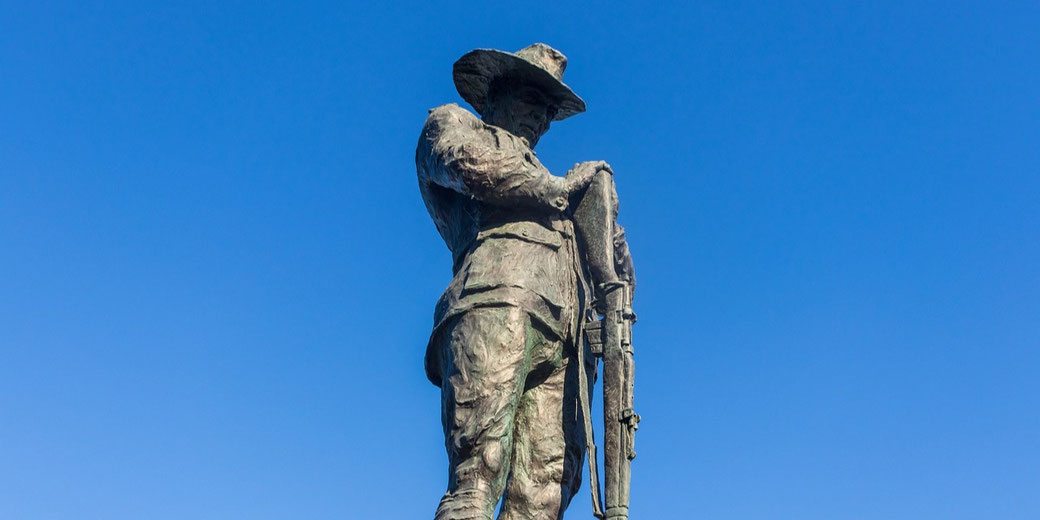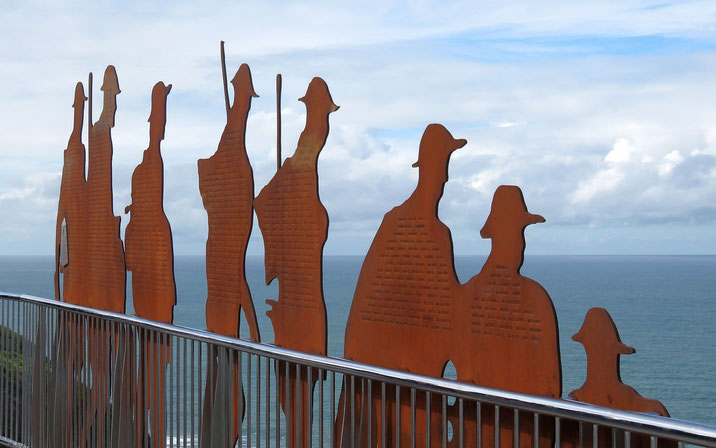The 'Anzac Legend' and its influence on Australians

On April 25 every year, Australians and New Zealanders come together to commemorate the sacrifices and heroism of the ANZACs who fought and died in war.
In particular, Anzac Day is a celebration of the 'Anzac Legend': a powerful and enduring myth that has shaped Australian identity, culture, and politics.
But, what are the origins of the Anzac Legend?
And what enduring impact does it have on Australian history?
Birth of the legend
The 'Anzac Legend' is based upon the enduring myth of the Australian and New Zealand Army Corps (ANZAC) soldiers who fought in World War I.
This myth portrays the ANZACs as brave, resilient, and self-sacrificing warriors.
The Anzac Legend originated in the Gallipoli campaign, which was the first major military operation of the Australian and New Zealand forces during World War I.
The campaign had aimed to secure a passage through the Dardanelles Strait to Constantinople but was a catastrophic failure.
When the ANZACs landed on the Gallipoli Peninsula on April 25, 1915, they faced a fierce resistance from the Turkish troops.
Despite suffering catastrophic loss of life, the ANZACs managed to hold their ground for eight months until they were eventually evacuated in December 1915.
Growth in popularity
The ANZACs' heroic stand at Gallipoli quickly captured the imagination of the Australian and New Zealand public.
The myth of the Anzac Legend grew out of the stories and images of the ANZACs' experience in the campaign.
Newspapers and personal letters focused on stories of courage, mateship, and sacrifice.
As a result, a kind of idea developed that Australians and New Zealanders were of a different character than their European counterparts.
As the popularity of this picture developed, it highlighted the qualities of exceptional resilience and egalitarianism.
In fact, the government played a significant role in propagating the Anzac Legend.
They had a vested interest in promoting it as a central part of the Australian national identity.
This was motivated by the sense of national mourning during the aftermath of World War I.
The Australian government in particular saw the need to commemorate the sacrifices of the ANZACs and to foster a sense of national pride and unity.
To this end, the government established the Anzac Day commemoration and created the Anzac Legend as a way of promoting the values of courage, resilience, and mateship that the ANZACs were believed to embody.
In addition, the officially sanctioned histories of the war, which were commissioned by the government and written by leading historians, presented the ANZACs as heroes who fought for a just cause.
As a result, these histories helped to shape the public perception of the ANZACs and to create a mythology around their deeds.

Its influence on Australian culture
Over the last century, the Anzac Legend has had a significant impact on the way Australians commemorate their war dead.
Anzac Day, which is held on April 25 every year, has become a national day of remembrance that honours all Australians who have served and died in various global conflicts.
Typically, the day involves dawn services, parades, and ceremonies. It is one of the most important days in the Australian calendar.
Problems with the legend
While the Anzac Legend has been widely celebrated and revered in Australia and New Zealand, it has also been the subject of criticism by some historians.
One of the main criticisms of the legend is that it has been used to perpetuate myths about the ANZACs and to whitewash the realities of war.
For example, some historians argue that the Anzac Legend has been used to glorify war and to present it as a noble and heroic undertaking, when in reality war is often brutal, traumatic, and devastating.
Also, the legend has also been criticised for perpetuating overly simplisic stereotypes of the ANZACs as being primarily white, male, and Anglo-Saxon.
In reality, Australian soldiers, from WWI to the present, come from diverse backgrounds and cultures.
More recently, the legend has been criticised for being used to justify Australia's military interventions in places like Vietnam, Iraq, and Afghanistan, even when these interventions have been controversial or unpopular.

Does it have a future?
The Anzac Legend is a powerful and enduring myth. And while it does have its limitations, it does not necessarily mean it should be rejected or discredited entirely.
Rather, by acknowledging its limitations and biases, we can seek a more nuanced and inclusive understanding of the ANZACs and their legacy.
It can even contribute to a broader and more meaningful conversation about war, identity, and national memory.
What do you need help with?
Download ready-to-use digital learning resources
Copyright © History Skills 2014-2025.
Contact via email
With the exception of links to external sites, some historical sources and extracts from specific publications, all content on this website is copyrighted by History Skills. This content may not be copied, republished or redistributed without written permission from the website creator. Please use the Contact page to obtain relevant permission.





